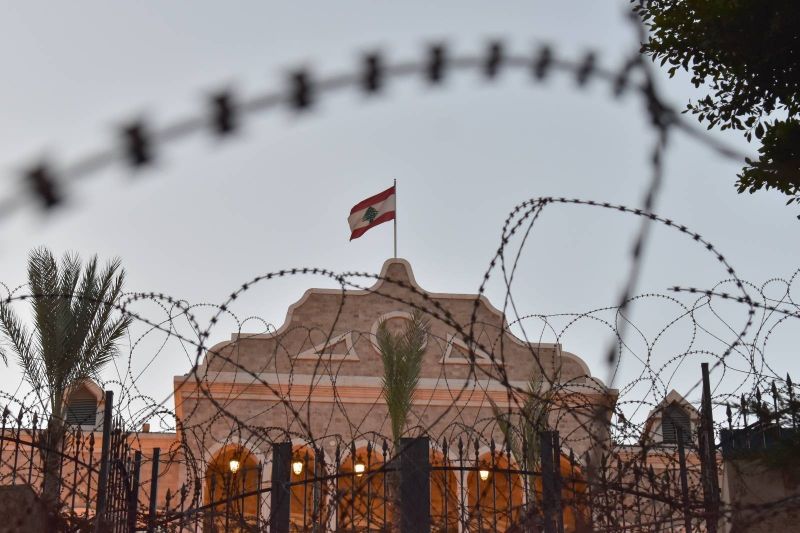
The Grand Serail, seat of government, Beirut. (João Sousa/L'Orient Today)
Parliament is studying the draft budget for 2024, and then will either vote on it or against it.
This process ought to be repeated every year and is part of a wider process, spread over several months. It is designed to ensure that by the end of a given year, the state has a tool — among others — that will enable it to manage public finances for the coming year.
How should this process be carried out at all stages of the vote in Parliament?
The nine main stages
1) During the summer, the finance minister should prepare the preliminary draft budget, a sort of rough draft, and send it to the cabinet, which should meet to study and amend it. Once everything is agreed upon, it should be approved. The approved text becomes the draft budget.
2) This draft is then sent to Parliament, where it is generally reviewed by the Finance and Budget Committee.
3) Parliament’s second ordinary session of the year, which shall begin Oct. 15 and end Dec. 31, is then devoted to examine the draft, which should ideally be ready and submitted before this deadline.
4) On Dec.31, Parliament must vote on the budget, item by item.
5) If no agreement were to happen among the MPs by Dec. 31, an extra month is granted by virtue of the constitution, until the end of January of the year in which the budget is to be implemented.
6) During this additional period, expenditure and revenues are implemented on the basis of the provisional one-twelfth rule, i.e. in the same way as in January of the previous year.
7) If no decision was made by the MPs by the end of January, the budget shall be enforced in the form in which it was submitted to Parliament, by decree adopted with the assent of the cabinet.
8) Once passed or adopted by decree, the budget shall be published in the Official Gazette, thereby becoming legal and enforced.
9) Finally, no budget can, in principle, be passed without Parliament approving the audited closure of public accounts for the previous year, establishing it in a settlement law. This is one of the means available to MPs to control the way in which the cabinet implemented the budget law.
From theory to practice in Lebanon
As explained above, the various stages involved in the drafting and monitoring of the budget are set out in a fairly comprehensive framework.
The problem is that, for years, politicians have not, or have only partially, respected this framework.
The country did not pass a budget between 2005 and 2016. What’s more, all the budget laws passed between 2017 and 2020 were passed outside the stipulated timelines.
In 2021, Lebanon once again avoided doing things by the book. In 2022, a budget was adopted in September, but did not come into force until 10 and a half months after the start of the year in which it was due to be implemented.
In 2023, the cabinet did not approve the preliminary draft prepared by caretaker Finance Minister Youssef Khalil until the summer. The text was then sent back to the cabinet by the Finance Committee, while the cabinet worked on the 2024 budget, this time on schedule.
As a result, once received by Parliament, the Finance Committee decided to merge the two laws, leaving Lebanon without a budget until the end of 2023.
Lebanon has yet to vote on the closure of public accounts for the 1993-2022 period, as well as the corresponding settlement laws.
This article was originally published in L'Orient-Le Jour.